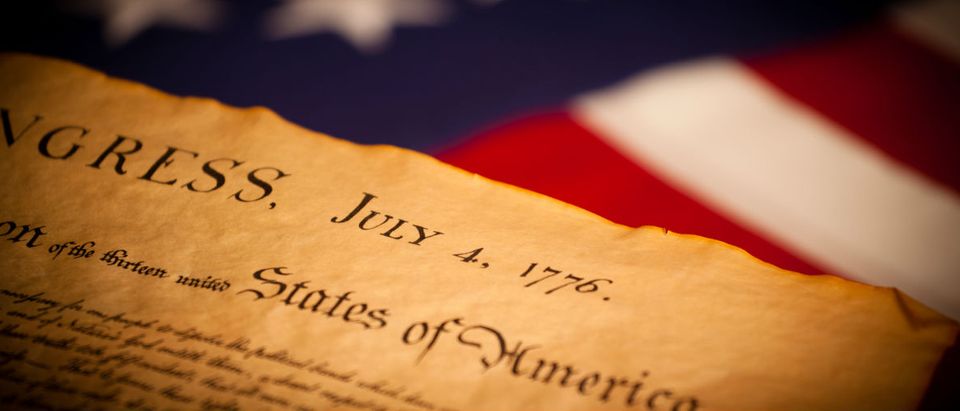A team of Harvard researchers has discovered a previously unknown parchment copy of the Declaration of Independence in the archives of a small town in England, the Boston Globe reports.
The Harvard team discovered the document in 2015 as part of the Declaration Resources Project, and announced their find during a conference at Yale University Friday.
For the full scoop on the Sussex Declaration, visit our website: https://t.co/cNqYefSgG6 pic.twitter.com/FlIo5R74FN
— DeclarationResources (@declarationres) April 21, 2017
The document is the only other known parchment copy of the Declaration besides the one housed in the National Archives in Washington, D.C. While the newly discovered document was found in the West Sussex Record Office in Chichester, UK, it was created in the U.S. during the 1780s, the researchers claim.
The researchers believe the “Sussex Declaration,” as they call it, was owned by the Third Duke of Richmond, known at the time as the “Radical Duke” for his support of the American revolutionaries during the war of Independence.
The team, comprised of Professor Danielle Allen and researcher Emily Sneff, were looking for copies of the Declaration printed in England during the late 18th century, and discovered a listing in the West Sussex archives for a parchment copy.
The fact that the archives listed a Declaration written on parchment indicated it was a copy made for a special occasion, not just for newspaper publication.
“I reached out to them a bit skeptically,” Sneff told The Guardian. “The description was a little vague but once we saw an image and talked to a conservator we started to get excited.”
Notably, the order of the signers on the Sussex Declaration is different from the original Declaration. On the primary Declaration, the names of the signers was organized by the state from which each delegate hailed.
Throughout the 1780s, when the Sussex Declaration was likely commissioned, American politicians were arguing about how to organize their new nation. Some argued that America should be a loosely associated confederacy of independent states, while a group known as the Federalists fought for a stronger national government restricted through the constitution.
“The team hypothesizes that this detail supported efforts, made by [Federalist James] Wilson and his allies during the Constitutional Convention and ratification process, to argue that the authority of the Declaration rested on a unitary national people, and not on a federation of states,’’ the researchers said in a statement.
Follow Thomas Phippen on Twitter
Send tips to thomas@dailycallernewsfoundation.org.
All content created by the Daily Caller News Foundation, an independent and nonpartisan newswire service, is available without charge to any legitimate news publisher that can provide a large audience. All republished articles must include our logo, our reporter’s byline and their DCNF affiliation. For any questions about our guidelines or partnering with us, please contact licensing@dailycallernewsfoundation.org.


